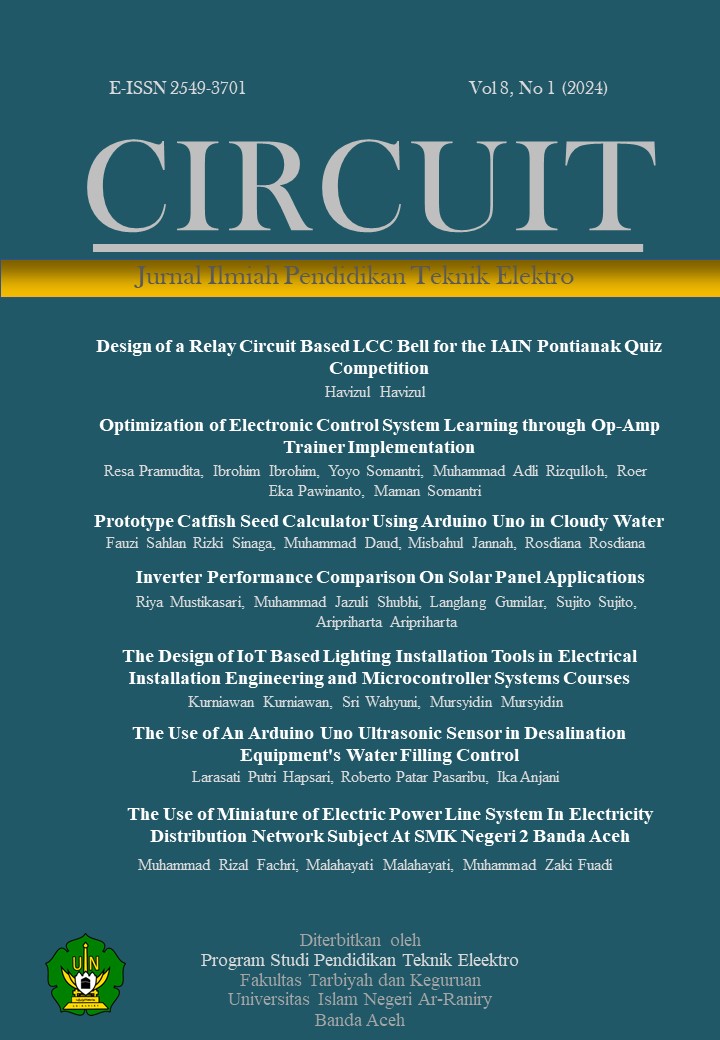Design and Development of a Flood Detection Device for Drainage Systems Utilizing Float Switch Water Level Sensors
DOI:
https://doi.org/10.22373/crc.v8i1.20974Keywords:
Flood, Mamdani, Sensors float switch water levelAbstract
Indonesia ranks second in Asia Pacific in the list of the highest number of deaths due to natural disasters. In a year, more than 300 flood events occur, resulting in large losses, environmental damage and even loss of life. To overcome this problem, it is necessary to design a tool for monitoring water levels and rainfall. This research aims to design a flood detection system using the fuzzy method and using a float switch water level sensor. The results of the research show that this system can monitor water levels and rainfall using a web server. In the first test, it produces a fuzzy warning level in a safe condition. In the second test, the water level reached 51 cm with rainfall of 0.47 mm, and the fuzzy warning level was in a safe condition. Finally, in the third test, the average water level reached 99 cm with rainfall of 0.69 mm, resulting in a fuzzy warning level in an alert state. It can be concluded that this system needs to be improved in quality by adding items to the system.
Downloads
Published
Issue
Section
License
Authors who publish in CIRCUIT: Jurnal Ilmiah Pendidikan Teknik Elektro agree to the following terms:
- Authors retain copyright and grant the journal right of first publication with the work licensed under a Creative Commons Attribution-ShareAlike 4.0 International License (CC BY-SA 4.0) that allows others to share and adapt the work with an acknowledgement of the authorship and initial publication in this journal
- Authors are able to enter into separate, additional contractual arrangements for the non-exclusive distribution of the journal's published version of the work (e.g., post it to an institutional repository or publish it in a book), with an acknowledgment of its initial publication in this journal.
- Authors are permitted and encouraged to post their work online (e.g., in institutional repositories or on their website) prior to and during the submission process, as it can lead to productive exchanges, as well as earlier and greater citation of published work. (See The Effect of Open Acces)

